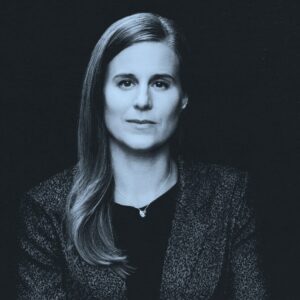
Reading Men Celebrating Three Years of Reading Women
Sam Winchester and Josh Privett Join Kendra Winchester and Autumn Privett
Autumn and Kendra announce Reading Women Month and chat with Samuel Winchester and Josh Privett, their husbands, about what it’s been like working on the podcast these past three years.
Why isn’t Donna Tartt taught in our grad school classes?
Autumn Privett: Kendra and I met in grad school, and we had all these literary classes together. And we were only reading dead white men. And I remember once we read Donna Tartt, and I was like, “Why isn’t Donna Tartt taught in our grad school classes? Are there other women like this writing big literary novels? And if so, why don’t we know about them?” So it started out as a personal project.
Kendra Winchester: We were buddy-reading a lot of books at the time. And basically, at the time, podcasting—I think Serial was really big—and everyone discovered what podcasts were. And we were always tag-teaming in book clubs; it was always this joke like, oh, The Kendra and Autumn Show—you should have a podcast.
*
We want women of all different shapes and sizes and backgrounds and abilities to also be represented as well because that’s what our listenership looks like and that what women look like.
AP: In addition to featuring books by women, we try to feature within that category a diverse selection of voices within that category. So that’s very intentional on our part.
KW: We went through the backlists, and that’s why the contributors are so great because they bring their own backlists, and there’s a lot of backlists because sometimes there’s specific themes. We’re doing the partition of India, for example, and there are a lot of books in the US by women about the partition of India. Sumayya has a great list; some available in India only, and so it depends on the availability. We wanted it to be accessible in audio and ebook and in multiple countries.
AP: Accessibility for formats is also something we try to pay attention to because, as Kendra mentioned, we want to try to have all the discussion books be available on audiobook, if possible, and ebook and be available internationally, because we have a very international listenership.
KW: It’s been interesting to see that. We don’t have a ton of stats on our episodes, because podcast stats are notoriously terrible, but on our Instagram, about 50 percent of our listeners are outside the US.
Josh Privett: You said earlier, Autumn, that diversity is something you have been thinking about since day one, and you also mentioned how adding contributors three years on, the way you think about which books, accessibility, audience interest, you think about these more. How do you talk about diversity when you pick out books? How much is the idea of diversity part of your decision process?
AP: It’s a big part of our decision process. We try to have at least 50 percent of the selections, each time, be by women of color. That way we have a wide range of voices represented, and it’s not just from one perspective or from one place in the world. That is something we really care about.
KW: And diversity for us means including LGBTQ+ people, people from rural areas, people from working class backgrounds, people who have chronic illnesses and/or people with disabilities. So having that broad range of what diversity looks like has been really important because we want women of all different shapes and sizes and backgrounds and abilities to also be represented as well because that’s what our listenership looks like and that’s what women look like.
Reading Women
Reading Women is a weekly podcast where women discuss books by or about women. Co-hosted by Kendra Winchester, Sachi Argabright, Jaclyn Masters, and Sumaiyya Naseem, Reading Women releases new episodes every Wednesday. Each month features two episodes on the same theme—one highlighting a range of titles and one discussing two titles more in depth—and two author interviews with talented women writers.



















